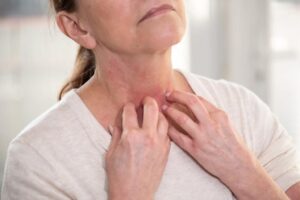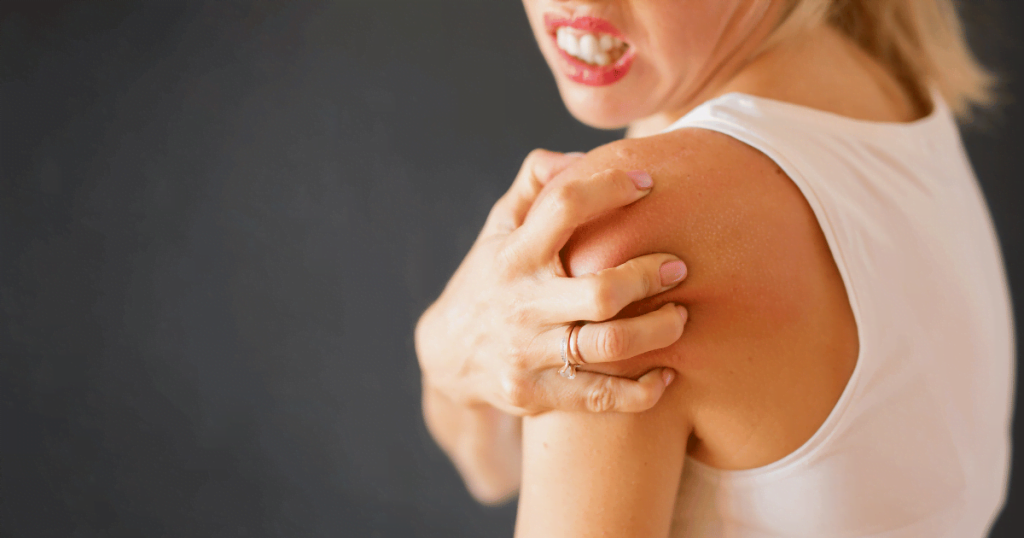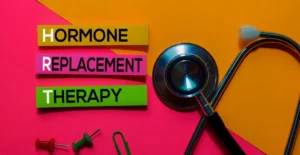Menopause is a natural and inevitable phase in a woman’s life, marking the end of her reproductive years. Alongside the hormonal changes that accompany menopause, many women experience a range of symptoms, including hot flashes, mood swings, and itching. Menopause itching, also known as menopausal pruritus, can be distressing and affect the overall quality of life for many women. In this comprehensive guide, we will delve into the causes, symptoms, and various treatment options available to alleviate menopause itching.
Contents
Is Menopause Related To Itching?

Yes, menopause can be associated with itching, and this symptom is often referred to as menopausal itching or menopausal pruritus. Itching during menopause is primarily linked to hormonal changes, especially the decline in estrogen levels.
- Estrogen Decline: Estrogen is a hormone that plays a crucial role in maintaining the health of various tissues, including the skin. It promotes collagen production, helps with skin elasticity, and supports the function of oil glands. As women approach menopause, there is a significant decrease in estrogen levels, leading to changes in the skin.
- Dry Skin: One of the common effects of estrogen decline is the reduction of oil production by the skin’s oil glands. This can result in dryness, flakiness, and a lack of moisture in the skin, which in turn can lead to itching.
- Genital Atrophy: Menopausal women may also experience genital atrophy, a condition where the tissues of the vagina become thinner, drier, and less elastic. This can cause itching and discomfort in the genital area.
- Skin Sensitivity: The hormonal changes during menopause can make the skin more sensitive and prone to irritation, further contributing to the sensation of itching.
While hormonal changes are a major contributor to menopausal itching, other factors can exacerbate the symptoms. These include stress, anxiety, and lifestyle factors. Chronic stress, for example, can trigger inflammatory responses in the body, affecting the skin and potentially intensifying itching.
It’s important for women experiencing menopausal symptoms, including itching, to consult with a healthcare professional. They can provide a thorough evaluation, offer personalized advice, and recommend appropriate treatments based on individual health needs.
Different Menopause Itching Treatment Options
How To Get Menopause Itching Treatment Option?
When seeking information on menopause itching treatment options, it’s important to rely on reputable online sources that provide accurate and evidence-based information. Here are some trustworthy online sources where you can find information on menopause itching and its treatment:
- HerMantra: HerMantra is a renowned medical institution, and its online resources are known for providing comprehensive and reliable information on various health topics.
- American College of Obstetricians and Gynecologists (ACOG): ACOG is a professional organization of physicians specializing in women’s health, and its website offers authoritative information on menopause and related issues.
- WebMD: WebMD is a well-established health information platform that provides articles, expert advice, and community forums on various health topics, including menopause.
- National Institute on Aging (NIA): NIA, a part of the National Institutes of Health (NIH), focuses on aging-related research. Their resources are based on scientific evidence and research.
- Healthline: Healthline is a trusted health information website that provides evidence-based articles, expert-reviewed content, and a variety of health resources.
Conclusion
In conclusion, managing menopause itching involves a multifaceted approach that considers both hormonal and lifestyle factors.
Consulting healthcare professionals is crucial for personalized treatment plans. By combining medical interventions with lifestyle adjustments, women can navigate the challenges of menopause itching, promoting overall well-being during this transitional phase of life.
If you are facing menopause-related issues, menopause treatment at HerMantra can help. Book your free trial online menopause treatment session now.




